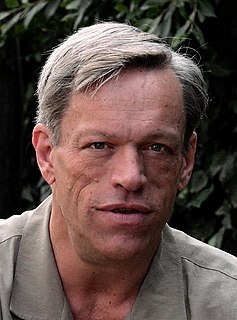A Quote by Anthony Doerr
I did go to an MFA program, at Bowling Green State University in Ohio. For me, it worked perfectly. It was a small program. They only take five fiction writers a year, and they fund all of us - you don't go into debt to get an MFA. It's not like getting an MBA - you're not going to buy yourself out.
Related Quotes
I wrote Baghdad Central right after translating a great work by Ibrahim al-Koni, who is sort of a master of Arab fiction. In conversations with him I realized that translations have been my MFA program. If I have learned how to write fiction it's by working with great writers and getting them to explain their craft to me so that I can do it in English. That's how I've figured it out.
It's good to go back and look at what other states are doing. For example, Mayo Clinics and the University of Minnesota had a collaborative grant program that we modeled our program after, so we went back to talk to them about the successes of their program. It's been very successful, the state is going back to fund it again, and it's resulted in a great deal of collaboration and specifically patented technology.
I have done literary translation because the University of Arkansas, where I did my MFA, was program of creative writing and translation, and it's a very different experience. You're trying to honor the writer. You shouldn't allow yourself, for example, to encounter a sentence that's three lines long and break it up into four smaller sentences.
When I taught at the University of Houston in the Creative Writing program we required the poets to take workshops in fiction writing and we required the fiction writers to take workshops in poetry. And the reason for that is because the fiction writers seemed to need to learn how to pay greater attention to language itself, to the way that language works.
With Ibrahim al-Koni, what I figured out was - and you'll see this in his novels - if your time is limited, make the unit of the chapters small so that you can finish one a day, at least in the first draft. Once you have the first draft it's living, and you can coax it to grow and trim it and reshape it and so on. But get that first draft. I think if I'd gone to an MFA program and learned that, it would have been money well spent. But translation has been that for me.



































